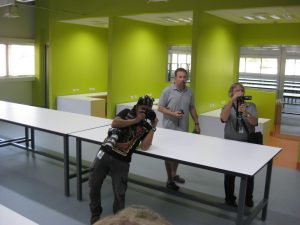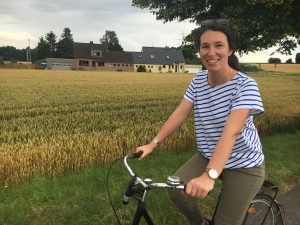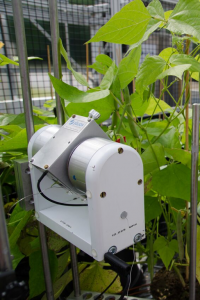- About
- Members
- Join
- Member log in
- Membership Renewal
- Member directory
- Life Members
- ASPS Life Member Professor Graham Farquhar
- ASPS Life Member Associate Professor Hendrik (Hank) Greenway
- ASPS Life Member Dr Marshall (Hal) D Hatch
- ASPS Life Member Dr Paul E Kriedmann
- ASPS Life Member Dr Mervyn Ludlow
- ASPS Life Member Emeritus Professor Rana Munns
- ASPS Life Member Conjoint Professor Christina E Offler
- ASPS Life Member Professor (Charles) Barry Osmond
- ASPS Life Member Emeritus Professor John W Patrick
- ASPS Life Member Dr Joe Wiskich
- Corresponding Members
- Elected Fellows
- Events
- Awards & Funding
- Employment
- Publications
- Research
- Teaching
- Menu
Call for early career representatives on the Science and Technology Australia executive committee
19 October 2016
Your membership is paid to [wpmlfield name=”paidtodate”] (year, month, day).
Dear ASPS members,
The attached document is a request for expressions of interest from early career researchers as early career representatives on the Science and Technology Australia executive committee (2 year appointment). These positions will be voted on at the AGM on 25 November. If people with interest in this could please email me (Ulrike Mathesius) by 4th November. Applicants will need written support from two other members.
Thank you!
Uli
Phyoten blog, call for New Phytologist Tansley Medal (early career researcher) and GPC e-bulletin for September
14 October 2016
Your membership is paid to [wpmlfield name=”paidtodate”] (year, month, day).
See John Evans speaking at the opening of the LT Evans Plant Growth Facility at the International Rice Research Institute, Philippines in our latest Phytogen blog post
Calling all early-stage career scientists!
The New Phytologist Tansley Medal is awarded annually in recognition of an outstanding contribution to plant science by an early career researcher (student and post-doctoral researchers with up to five years’ experience since gaining/defending their PhD are eligible). The winner will receive a prize of £2000 (GBP) and will author a Tansley insight review that will be published in New Phytologist, accompanied by an Editorial announcing the winner and finalists. The application deadline for this year’s competition is 30 November 2016.
The Tansley Medal is an opportunity to recognise an outstanding scientist in the early stages of his or her career, and supporting the next generation of plant scientists is a core aspect of the activities of the New Phytologist Trust. I would be very grateful if you would support us in this endeavour by spreading the word to anyone you know who might be eligible to apply for the 2017 Tansley Medal. If you have any queries regarding the medal or the submission process please do not hesitate to get in touch. More details on the Tansley Medal can be found at: http://www.newphytologist.org/tansleymedal.
|
||||||||||||||||||||||||||||||
|
||||||||||||||||||||||||||||||
|
If you have news you would like us to share on our website, please contact lisa@globalplantcouncil.org
| This month 60 new breaking news stories were posted on the GPC website including…
In Current Plant Biology: Microbes help plants survive in severe drought In New Phytologist: Plant diversity alleviates the effects of flooding on crops In Nature Plants: Future drought will offset benefits of higher CO2 on soybean yields From Journal of Experimental Botany: A recent Special Issue of Journal of Experimental Botany comes in response to the particularly fast-moving pace of discovery in peptide signalling. New work by Patrizia Trifiló et al. shows that water transport beyond the xylem is important in explaining the decline of whole-leaf hydraulic conductance with dehydration.
From Elsevier: Free Current Opinion in Plant Biology articles from a special issue on Agriculture & Climate Change Conference 2015 |
|
|
|
If you have a conference, meeting, workshop, training course or other event coming up, we can include it in our Events calendar! Please email lisa@globalplantcouncil.org
| International Symposium on Plant Senescence 31 October–1 November 2016. Jeju, Korea. |
International Agrobiodiversity Congress 2016
06–09 November 2016. New Delhi, India.
Reunión Argentina de Fisiología Vegetal
13–16 November 2016. Ciudad de Corrientes, Argentina.
1st Cold Spring Harbor Asia Conference: Latest Advances in Plant Development & Environmental Response
29 November–02 December 2016. Awaji, Japan.
13–16 November 2016. Ciudad de Corrientes, Argentina.
|
|
|
Global Plant Council Nutritional Security White Paper (PDF)
In case you missed it earlier in the year, you can download the Global Plant Council’s Nutritional Security white paper here.
|
|
|
The Cyclamen Society has established a new grant fund to provide up £5000 GBP for relevant research projects. International applicants are encouraged to apply; the research may be directly or indirectly related to Cyclamen.
More info…
|
|
|
Would you like to contribute an article to the GPC’s blog? Please get in touch! Email lisa@globalplantcouncil.org
| Bringing forgotten ideas on plant biomechanics into the 21st century Sarah Jose interviews Dr Winfried Peters who told us about his research into plant cell biomechanics, and how some forgotten 19th and 20th century ideas proved valuable. |
Come together
In this reblog from Nature Plants, the pros and cons of attending plant science conferences are discussed.
Cassava brown streak: lessons from the field
University of Bristol PhD student Katie Tomlinson shares the highlights and learnings from a recent field trip to Uganda.
1000 Plants
A familiar face is behind this blog post on the 1000 Plants initiative – former GPC New Media Fellow Amelia Frizell-Armitage missed us and asked to write us a post!
|
|
|
Click here for details of the GPC Member Societies and Affiliates and their representatives.
Please contact Ruth Bastow (ruth@globalplantcouncil.org) to find out how your organization can join the Global Plant Council.
|
|
|
|
|
|
|
|
Global Plant Council
3rd Floor, Bow House
1a Bow Lane
London, EC4M 9EE
United Kingdom
John Evans speaking at the opening of the LT Evans Plant Growth Facility at the International Rice Research Institute, Philippines, 21 January 2016
13 October 2016
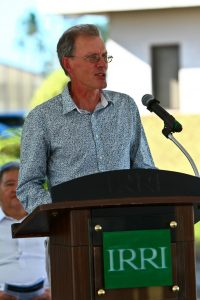 John Evans speaking at the opening of the LT Evans Plant Growth Facility at the International Rice Research Institute, Philippines, 21 January 2016 (left). The opening took place during IRRI Science Week and John, Murray Badger, Spencer Whitney, Paul Quick and Florence Danila contributed talks to the IRRI-Australia symposium.
John Evans speaking at the opening of the LT Evans Plant Growth Facility at the International Rice Research Institute, Philippines, 21 January 2016 (left). The opening took place during IRRI Science Week and John, Murray Badger, Spencer Whitney, Paul Quick and Florence Danila contributed talks to the IRRI-Australia symposium.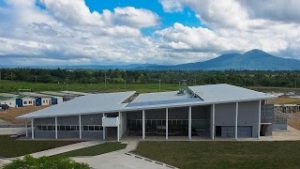
The $10M facility was a gift from Australia to IRRI (right). It was named after John’s father Lloyd who served on the IRRI board and whose efforts led to the first phytotron donated to IRRI around 2000. Inside the facility, rice seed handling and storage will occur on the left hand side and greenhouses, growth cabinets and laboratories for non transgenic research occurs on the right hand side. The building is engineered to withstand typhoons that frequently affect the area.
Behind the scenes, Spencer Whitney was planning a takeover of yet more office and lab space with his favourite colour scheme (right). His long face reflects his concern that one student talk had failed to mention Rubisco during the IRRI-Australia symposium.
Science & Technology Australia – October Newsletter
10 October 2016
Your membership is paid to [wpmlfield name=”paidtodate”] (year, month, day).
|
||||||||||||||||||||||||||||||
|
||||||||||||||||||||||||||||||
|
||||||||||||||||||||||||||||||
|
Plants in Action 2 new chapters and PDF update
01 October 2016
Your membership is paid to [wpmlfield name=”paidtodate”] (year, month, day).
Hello ASPS members,
Two new chapters have been added to the new edition of Plants in Action. plantsinaction.science.uq.edu.au
Chapter 4: Nutrient uptake from soils
Chapter 12: Sunlight and plant production
The new version has been redesigned so that the illustrations are cleaner and the PDF function for each page works better.
Chapters in the FIRST edition (plantsinaction.science.uq.edu.au/edition1) can now be downloaded as a single PDF, if you click on the first page of the chapter.
Thanks
Rana Munns
ASPS call for nominations
30 September 2016
Your membership is paid to [wpmlfield name=”paidtodate”] (year, month, day).
Dear ASPS members,
It seems that we have not received nominations for all the positions that fall vacant this year. In particular, we need to have nominations for Honorary Treasurer, Discipline rep for Plant Microbe Interactions and student representatives. You may recall we had the good fortune of needing to hold an election last year for one of the Discipline areas.
I would like to thank Brent Kaiser for his efforts as ASPS Honorary Treasurer and urge you to consider helping the society by nominating for this position which is generally held for a 3 year term. The nomination form is attached and it needs to reach the Secretary by October 3.
Thanks
John
Professor John R Evans FAA
Head, Division of Plant Sciences
Research School of Biology
The Australian National University
134 Linnaeus Way
Acton, ACT, 2601, Australia
T: 61 2 6125 4492
M: 0477 777132
W: http://biology.anu.edu.au/john_evans/
E: John.evans@anu.edu.au
President, Australian Society of Plant Scientists
ARC Centre of Excellence for Translational Photosynthesis
RN Robertson Travelling Fellowship – Report by Millicent Smith
27 September 2016
Using P. vulgaris (common bean) as a model system my PhD research has focused on the impact of abiotic stress, particularly drought and phosphorus deficiency, on photosynthetic capacity and the translation of resources into a developing seed.
Initial discussions with my PhD supervisor, Dr. Andrew Merchant, kept coming back to the same problem of our inability to fully understand source-sink dynamics if we couldn’t measure sink strength. This eventually led us to a portable NMR sensor, developed by Dr. Carel Windt and others at the Institute of Bio- and Geosciences (IBG-2) at Forschungszentrum Jülich (FZJ). FZJ is a large interdisciplinary science research centre set in a beautiful forest close to a town called Jülich, in the west of Germany.
The mobile nuclear magnetic resonance sensor (NMR) allows for the non-invasive, real-time measurement of water status and dry matter accumulation over seed development. Due to the portable and compact nature of the sensor it may be used to analyse components of a whole fixed plant, for instance a developing fruit (see Windt et al. 2011).
During the first year of my PhD, I worked closely with Dr. Carel Windt to assess the suitability and application of the NMR sensor in common bean. This initial visit to Jülich was the first time the NMR sensor was applied to a biological question. It was an important first step as we were able to complete a calibration and an experiment during this time.
I have learned a lot since that initial visit and thanks to the support from the Australian Society of Plant Scientists R.N Robertson Travelling Fellowship I was able to return to Jülich this year. Having previously visited for a short time in 2014 made it a little easier this time around. Not only did I have the knowhow for navigating the huge “SeeCasino” cafeteria, so lunchtime wasn’t as confusing, I also had a better understanding of the NMR methodology that we were able to apply to our experiments and answer some new questions.
We planned two separate experiments both aiming to manipulate source strength and observe whether we are able to detect a change in pod loading rates. One experiment was completed in a small climate chamber where we altered lengths of light-dark periods in an attempt to assess whether changes in starch cycling would impact on the developing grain, in particular the timing and magnitude of such an effect. The other experiment completed in the glasshouse using a multiplexed NMR system (6 NMR sensors all attached to the 1 spectrometer so we can measure lots of plants at once and keep measurements consistent) altered source strength of plants by pruning to investigate whether we could detect changes in loading rates within the sink tissue compared to plants that weren’t pruned.
While the glasshouse experiment didn’t go exactly as planned towards the end when a European “heat wave” stopped measurement time, what we found from both experiments was exciting and unexpected. Our results showed that under a range of conditions where source strength was manipulated, for instance a week in the dark and/or significant pruning (80% leaf area removed), loading of dry matter into the pod stayed the same as prior to the treatment or relative to the control. This result has sparked my interest and made me consider whether pods are more independent of leaves than we had previously thought.
Overall my time in Jülich was amazing. It was nice to have a taste of European life; I enjoyed riding my bicycle to the institute (on the days when it wasn’t raining) through the fields and forest, I loved trying different unpronounceable German bakery treats and sitting in the town square having a beer from the pub. It was great to be in Jülich for the biannual open day Tag der Neguier where I could join thousands of others when FZJ stopped their strict security checks for 1 day for citizens to come and discover the interesting research that they do and share in the excitement and passion that everyday Germans have for science.
I have come away from my visits to Jülich with lots of exciting data for my thesis (and some papers) but most of all I left knowing that I had made connections with leaders in my field, been exposed to interesting and novel ideas and technologies that I might have considered impossible before and confidence in my ability to collaborate, communicate and initiate my ideas.
I am incredibly grateful to the ASPS for awarding me an R.N Robertson Travelling Fellowship, to Carel Windt for inviting me to FZJ and the many others in the Emerging Technologies group for the lunchtime conversations and help, and finally to my supervisors Andrew Merchant and Tom Buckley who have encouraged me to collaborate and pursue interesting scientific questions.
Phytogen Blog: RN Robertson Travelling Fellowship – Report by Millicent Smith
27 September 2016
Phytogen Blog: RN Robertson Travelling Fellowship –
Report by Millicent Smith
Using P. vulgaris (common bean) as a model system my PhD research has focused on the impact of abiotic stress, particularly drought and phosphorus deficiency, on photosynthetic capacity and the translation of resources into a developing seed.
Initial discussions with my PhD supervisor, Dr. Andrew Merchant, kept coming back to the same problem of our inability to fully understand source-sink dynamics if we couldn’t measure sink strength. This eventually led us to a portable NMR sensor, developed by Dr. Carel Windt and others at the Institute of Bio- and Geosciences (IBG-2) at Forschungszentrum Jülich (FZJ). FZJ is a large interdisciplinary science research centre set in a beautiful forest close to a town called Jülich, in the west of Germany.
The mobile nuclear magnetic resonance sensor (NMR) allows for the non-invasive, real-time measurement of water status and dry matter accumulation over seed development. Due to the portable and compact nature of the sensor it may be used to analyse components of a whole fixed plant, for instance a developing fruit (see Windt et al. 2011).
During the first year of my PhD, I worked closely with Dr. Carel Windt to assess the suitability and application of the NMR sensor in common bean. This initial visit to Jülich was the first time the NMR sensor was applied to a biological question. It was an important first step as we were able to complete a calibration and an experiment during this time.
I have learned a lot since that initial visit and thanks to the support from the Australian Society of Plant Scientists R.N Robertson Travelling Fellowship I was able to return to Jülich this year. Having previously visited for a short time in 2014 made it a little easier this time around. Not only did I have the knowhow for navigating the huge “SeeCasino” cafeteria, so lunchtime wasn’t as confusing, I also had a better understanding of the NMR methodology that we were able to apply to our experiments and answer some new questions.
We planned two separate experiments both aiming to manipulate source strength and observe whether we are able to detect a change in pod loading rates. One experiment was completed in a small climate chamber where we altered lengths of light-dark periods in an attempt to assess whether changes in starch cycling would impact on the developing grain, in particular the timing and magnitude of such an effect. The other experiment completed in the glasshouse using a multiplexed NMR system (6 NMR sensors all attached to the 1 spectrometer so we can measure lots of plants at once and keep measurements consistent) altered source strength of plants by pruning to investigate whether we could detect changes in loading rates within the sink tissue compared to plants that weren’t pruned.
While the glasshouse experiment didn’t go exactly as planned towards the end when a European “heat wave” stopped measurement time, what we found from both experiments was exciting and unexpected. Our results showed that under a range of conditions where source strength was manipulated, for instance a week in the dark and/or significant pruning (80% leaf area removed), loading of dry matter into the pod stayed the same as prior to the treatment or relative to the control. This result has sparked my interest and made me consider whether pods are more independent of leaves than we had previously thought.
Overall my time in Jülich was amazing. It was nice to have a taste of European life; I enjoyed riding my bicycle to the institute (on the days when it wasn’t raining) through the fields and forest, I loved trying different unpronounceable German bakery treats and sitting in the town square having a beer from the pub. It was great to be in Jülich for the biannual open day Tag der Neguier where I could join thousands of others when FZJ stopped their strict security checks for 1 day for citizens to come and discover the interesting research that they do and share in the excitement and passion that everyday Germans have for science.
I have come away from my visits to Jülich with lots of exciting data for my thesis (and some papers) but most of all I left knowing that I had made connections with leaders in my field, been exposed to interesting and novel ideas and technologies that I might have considered impossible before and confidence in my ability to collaborate, communicate and initiate my ideas.
I am incredibly grateful to the ASPS for awarding me an R.N Robertson Travelling Fellowship, to Carel Windt for inviting me to FZJ and the many others in the Emerging Technologies group for the lunchtime conversations and help, and finally to my supervisors Andrew Merchant and Tom Buckley who have encouraged me to collaborate and pursue interesting scientific questions.
Women’s Leadership Development Scholarships
24 September 2016
Your membership is paid to[wpmlfield name=”paidtodate”] (year, month, day).
Dear ASPS member,
Women & Leadership Australia has just launched a third program in our portfolio of women’s leadership development programs.
With this third program we now have an unprecedented line up of leadership programs specifically designed for women:
· Advanced Leadership Program – Aimed at senior managers, directors and executive level women
· Executive Ready – Aimed at mid-level managers and leaders looking to take the next step into an executive role
· Accelerated Leadership Performance Program – Aimed at aspiring talent and women starting their journeys in managerial roles.
We have secured scholarship funding for the All Industry sector across all three programs. To ensure as many women in the All Industry sector are aware of this funding opportunity, we are inviting respected associations such as Australian Society of Plant Scientists to share this information with your members.
To assist you in disseminating the information to your members, I have attached a short message and a scholarship Expression of Interest form. If you need the message in a different format please let me know.
Association Partner Program
Further to our request that you kindly make your members aware of this opportunity, we are also introducing an Association Partner Program, meaning that your members would be exclusively eligible to apply for scholarship funding throughout the year, along with having your logo’s, web-links and information about how you are supporting the initiative (and gender equality in general) on the WLA website.
To help us track when information is distributed and to respond to enquiries promptly, it would be greatly appreciated if you could let me know if and when you are able to send out the information.
If you have any questions or would like to discuss this opportunity and or the partner program in more detail, I would be delighted to arrange a time to talk. Please feel free to contact me directly on (03) 9270 9016, or contact me via return email.
Many thanks and best regards
Ian Johnson
National Program Liaison Manager
Women and Leadership Australia
P 03 9270 9016
W www.wla.edu.au| E ijohnson@wla.edu.au
A Level 9, 607 Bourke Street, Melbourne VIC 3000
Women’s Leadership Development Scholarships
24 September 2016
Your membership is paid to[wpmlfield name=”paidtodate”] (year, month, day).
Dear ASPS member,
Women & Leadership Australia has just launched a third program in our portfolio of women’s leadership development programs.
With this third program we now have an unprecedented line up of leadership programs specifically designed for women:
· Advanced Leadership Program – Aimed at senior managers, directors and executive level women
· Executive Ready – Aimed at mid-level managers and leaders looking to take the next step into an executive role
· Accelerated Leadership Performance Program – Aimed at aspiring talent and women starting their journeys in managerial roles.
We have secured scholarship funding for the All Industry sector across all three programs. To ensure as many women in the All Industry sector are aware of this funding opportunity, we are inviting respected associations such as Australian Society of Plant Scientists to share this information with your members.
To assist you in disseminating the information to your members, I have attached a short message and a scholarship Expression of Interest form. If you need the message in a different format please let me know.
Association Partner Program
Further to our request that you kindly make your members aware of this opportunity, we are also introducing an Association Partner Program, meaning that your members would be exclusively eligible to apply for scholarship funding throughout the year, along with having your logo’s, web-links and information about how you are supporting the initiative (and gender equality in general) on the WLA website.
To help us track when information is distributed and to respond to enquiries promptly, it would be greatly appreciated if you could let me know if and when you are able to send out the information.
If you have any questions or would like to discuss this opportunity and or the partner program in more detail, I would be delighted to arrange a time to talk. Please feel free to contact me directly on (03) 9270 9016, or contact me via return email.
Many thanks and best regards
Ian Johnson
National Program Liaison Manager
Women and Leadership Australia
P 03 9270 9016
W www.wla.edu.au| E ijohnson@wla.edu.au
A Level 9, 607 Bourke Street, Melbourne VIC 3000
Recent Posts
Tags
Archives
- June 2025
- May 2025
- April 2025
- March 2025
- February 2025
- January 2025
- December 2024
- November 2024
- October 2024
- September 2024
- August 2024
- July 2024
- June 2024
- May 2024
- April 2024
- February 2024
- January 2024
- November 2023
- October 2023
- September 2023
- August 2023
- July 2023
- June 2023
- May 2023
- April 2023
- March 2023
- February 2023
- December 2022
- November 2022
- October 2022
- September 2022
- August 2022
- July 2022
- June 2022
- May 2022
- April 2022
- March 2022
- February 2022
- January 2022
- December 2021
- November 2021
- October 2021
- September 2021
- August 2021
- July 2021
- June 2021
- April 2021
- March 2021
- February 2021
- January 2021
- December 2020
- November 2020
- October 2020
- September 2020
- August 2020
- July 2020
- June 2020
- May 2020
- April 2020
- March 2020
- February 2020
- January 2020
- December 2019
- November 2019
- October 2019
- September 2019
- August 2019
- July 2019
- June 2019
- May 2019
- April 2019
- March 2019
- February 2019
- January 2019
- December 2018
- November 2018
- October 2018
- September 2018
- August 2018
- July 2018
- June 2018
- May 2018
- April 2018
- March 2018
- February 2018
- January 2018
- December 2017
- November 2017
- October 2017
- September 2017
- August 2017
- July 2017
- June 2017
- May 2017
- April 2017
- March 2017
- February 2017
- January 2017
- December 2016
- November 2016
- October 2016
- September 2016
- August 2016
- July 2016
- June 2016
- May 2016
- April 2016
- March 2016
- February 2016
- January 2016
- December 2015
- November 2015
- October 2015
- September 2015
- August 2015
- July 2015
- June 2015
- May 2015
- April 2015
- March 2015
- February 2015
- January 2015
- December 2014
- November 2014
- October 2014
- September 2014
- August 2014
- July 2014
- June 2014
Copyright 2017 Australian Society of Plant Scientists Disclaimer & Privacy
Website by Michael Major Media








